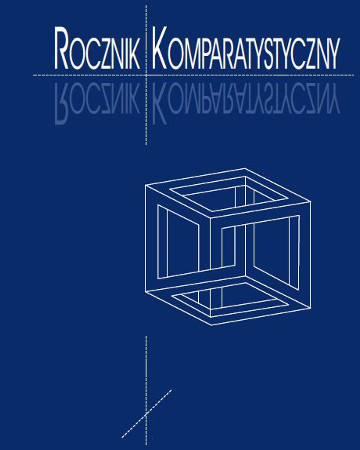





| Autorzy: |
Dong
Yang
University of Georgia, USA |
| Słowa kluczowe: | literatura porównawcza wielokulturowość miękkość sympatia instrumentalna afekt asamblaż literatura azjatycko-amerykańska |
| Data publikacji całości: | 2019 |
| Liczba stron: | 18 (51-68) |
| 1. | Berlant, Lauren. Cruel Optimism. Durham: Duke University Press, 2012. |
| 2. | Bogue, Ronald. Thinking with Deleuze. Edinburgh: Edinburgh University Press, 2019. |
| 3. | Delanda, Manuel. Assemblage Theory. Edinburgh: Edinburgh University Press, 2016. |
| 4. | Deleuze, Gilles. Empiricism and Subjectivity: An Essay on Hume’s Theory of Human Nature. Trans. Constantin V. Boundas. New York: Columbia University Press, 2001. |
| 5. | ------. Pure Immanence: Essays on A Life. Trans. Anne Boyman. New York: Zone Books, 2002. |
| 6. | Deleuze, Gilles, Félix Guattari. What Is Philosophy? Trans. Hugh Tomlinson, Graham Burchell. New York: Columbia University Press, 1994. |
| 7. | Deleuze, Gilles, Claire Parnet. Dialogues II. Trans. Hugh Tomlinson, Barbara Habberjam. New York: Columbia University Press, 1997. |
| 8. | Eng, David. Racial Castration: Managing Masculinity in Asian America. Durham: Duke University Press, 2001. |
| 9. | Figueira, Dorothy. Otherwise Occupied: Pedagogies of Alterity and the Brahminization of Theory. Albany: SUNY Press, 2008. |
| 10. | ------. “How Have We Rebuilt the Profession?”. Rebuilding the Profession: Comparative Literature, Intercultural Studies, and the Humanities in the Age of Globalization. Ed. Dorothy Figueira. Göttingen: Vandenhoeck & Ruprecht, 2020. 15–32. |
| 11. | Gilroy, Paul. The Black Atlantic: Modernity and Double-Consciousness. Cambridge: Harvard University Press, 1993. |
| 12. | Holland, Sharon Patricia. The Erotic Life of Racism. Durham: Duke University Press, 2012. |
| 13. | Horkheimer, Max. Critique of Instrumental Reason. Trans. Matthew O’Connell. London: Verso, 2012. |
| 14. | Hwang, David Henry. M. Butterfly. New York: Plume, 1993. |
| 15. | Luo, Michael. “An Open Letter to the Woman Who Told My Family to Go Back to China.” New York Times, Oct. 9, 2016. https://www.nytimes.com/2016/10/10/nyregion/to-the-woman-who-told-my-family-to-go-back-to-china.html. |
| 16. | Ngai, Sianne. Our Aesthetic Categories: Zany, Cute, Interesting. Cambridge: Harvard University Press, 2015. |
| 17. | Patton, Paul. Deleuzian Concepts: Philosophy, Colonization, Politics. Stanford: Stanford University Press, 2010. |
| 18. | Said, Edward. Orientalism. New York: Vintage, 2003. |
| 19. | Salecl, Reneta. (Per)versions of Love and Hate. London: Verso, 2000. |
| 20. | Taylor, Charles. “The Politics of Recognition.” Multiculturalism. Ed. Amy Gutmann. Princeton: Princeton University Press, 1994. |
| 21. | Touraine, Alain. Can We Live Together? Equality and Difference. Cambridge: Polity, 2000. |